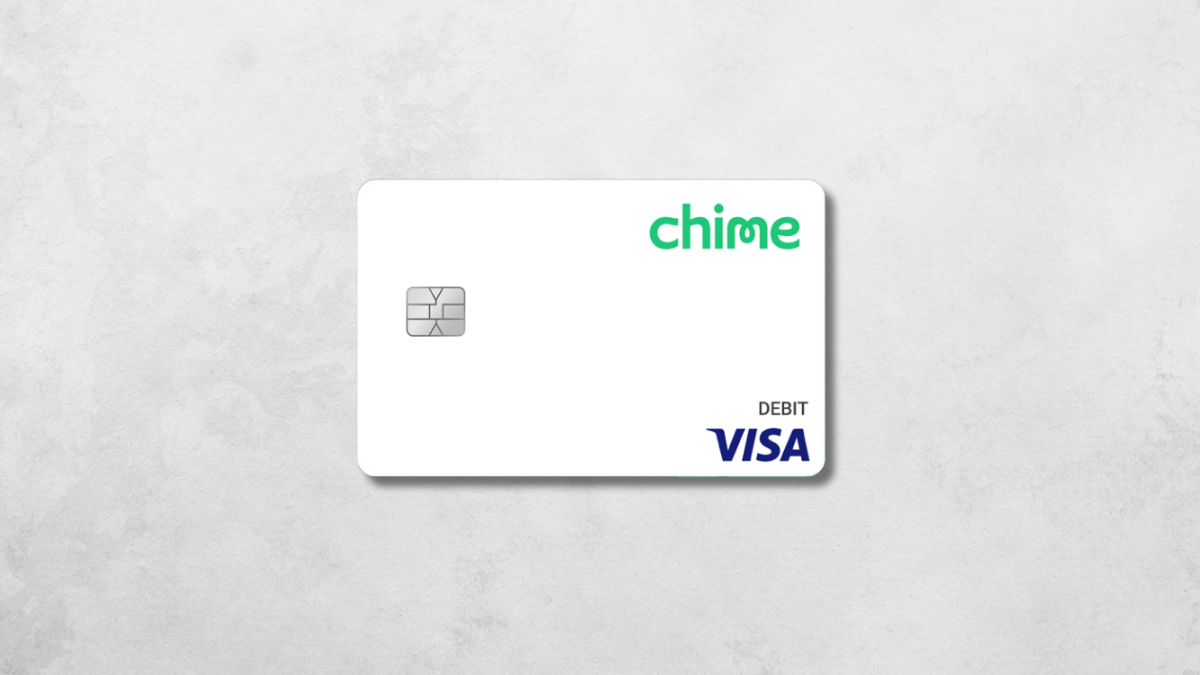Finances
How to Invest in Mutual Funds: 5 Practical Steps
Discover essential tips on how to invest in mutual funds. Understand different types, analyze fees, and make informed choices for a diversified portfolio. Start investing wisely today!
Advertisement
Maximize your returns and build wealth with mutual funds

Learning how to invest in mutual funds unlocks diverse investment avenues. Our guide simplifies choices, covering fund types and strategies.

Choose the right credit card
Are you looking for a new credit card? Then you're in the right place! Pick a credit card option based on your financial needs! Read on!
We focus on selecting the right funds and understanding associated fees. The idea is to equip you with the tools to navigate the investment landscape confidently. Read on!
What is a mutual fund?
A mutual fund aggregates funds from multiple investors into a single entity. It invests this collective fund in stocks, bonds, or other assets, offering diversification.
Moreover, mutual funds are managed by financial experts, known as fund managers. These professionals decide where to invest the money, aiming to maximize returns for all investors.
Moreover, when you invest in a mutual fund, you get ownership in the fund’s shares; but not the specific assets it invests in. This approach spreads out the risk.
These investments are ideal for those wondering how to invest in mutual funds without extensive market knowledge.
Consequently, mutual funds come with fees. These include management fees for the professional handling of the fund and potentially other administrative costs.
Lastly, mutual funds are suitable for various investment goals, whether it’s saving for retirement or building wealth. They provide a balanced approach to investing.
You will be redirected to another website
By submitting this form, I agree that I am 18+ years old and I agree to the Privacy Policy and Terms and Conditions. I also provide my signature giving express consent to receive marketing communications via automated emails, SMS or MMS text messages and other forms of communication regarding financial products such as credit card and loans. Message frequency varies and represents our good faith effort to reach you regarding your inquiry. Message and data rates may apply. Text HELP for help or text STOP to cancel. I understand that my consent to receive communications is not a condition of purchase and I may revoke my consent at any time.
Is it safe to invest in mutual funds?
Investing in mutual funds carries risk, like any investment. However, their diversification can reduce risk compared to individual stocks.
To understand how to invest in mutual funds safely, it’s key to know they’re subject to market fluctuations. This means your investment value can change.
Additionally, researching fund performance history and fund manager expertise can provide insights into the fund’s stability and potential risks.
Ultimately, while no investment is entirely risk-free, mutual funds can be a relatively safer option. Especially for those seeking diversified, managed portfolios.
How to start investing in mutual funds

Beginning your adventure in learning how to invest in mutual funds can be thrilling yet somewhat daunting.
But this guide below will help to simplify the process.
Whether you’re a beginner or looking to refine your strategy, you’ll find valuable insights to help you navigate the world of mutual funds.
One: Exploring the World of Mutual Funds
First and foremost, get a solid understanding of mutual funds.
These are investment vehicles that pool funds from numerous investors to acquire stocks, bonds, and various other assets.
Next, it’s crucial to understand the types of mutual funds. There are equity funds, bond funds, balanced funds, and more, each with different risk levels and investment focuses.
Also, consider their management style. There are actively managed funds, where managers make specific investment choices, and passive funds, which track market indexes.
Two: Setting Your Investment Goals
Begin by defining your investment objectives. Are you saving for retirement or building wealth? Your goals will influence which mutual funds are suitable for you.
Furthermore, evaluate your risk tolerance. Are you at ease with high-risk, high-reward investments, or do you lean towards a more cautious and conservative approach?
Then, consider your timeline. If you have a long-term perspective, you might be more comfortable with funds that have short-term volatility but potential for long-term growth.
Three: Researching Mutual Funds
Research different mutual funds and look into their past performance. It gives an idea of how the fund has managed under various market conditions.
Furthermore, check the fund’s expense ratio. This fee, charged annually, can impact your returns over time. Lower expense ratios are generally preferable.
Also, read up on the fund manager’s experience and track record.
A skilled manager can make a significant difference in a fund’s performance, especially in actively managed funds.

Choose the Perfect Cards for Bad Credit
Knowing which are the best credit cards for bad credit can be a game-changer. Elevate your financial health, rebuild your credit score. Read on!
Four: Choosing a Brokerage or Investment Platform
Select your mutual fund source: online brokerage, financial advisor, or direct investment with a fund company. Each option has its pros and cons.
Additionally, compare the fees and services offered by different platforms.
Some may offer a wider range of mutual funds or lower transaction fees, which can be crucial for your strategy.
Remember, the ease of use of the platform is important. Choose one that’s user-friendly and aligns with your investment style and experience level.
Five: Making Your Investment
When you’re ready, begin by selecting a fund that matches your objectives and risk tolerance. If you’re uncertain about how to invest in mutual funds, start small.
Also, diversify your investments. Don’t put all your money into one fund. Spreading your investment across different types of funds can reduce risk.
Finally, stay informed about your investments.
Regularly check the performance of your mutual funds, but avoid the temptation to react hastily to short-term market fluctuations.
Different types of mutual funds
Understanding the different types of mutual funds is a crucial part of learning how to invest in mutual funds effectively.
Below, we’ll provide an in-depth look at the different categories. This will help you make informed decisions to align with your investment goals.
Equity Funds (or Stock)
Stock funds, also known as equity funds, primarily invest in shares of various companies.
These funds offer the potential for high returns but come with higher risks due to volatility.
Within equity funds, there are sub-categories like growth funds, which focus on stocks that are expected to grow at an above-average rate compared to other companies.
Another category is value funds, which invest in stocks considered undervalued in price and expected to rise. These funds are ideal for bargaining stocks with potential for appreciation.
Fixed-Income Funds (or Bonds)

Bond funds invest in various debt securities. These are generally considered lower risk than stock funds and provide regular income, making them appealing to conservative investors.
Government bond funds invest in government-backed securities and are seen as low-risk.
Corporate bond funds, however, invest in corporate debt securities and carry higher risk.
International bond funds are another option, investing in bonds from various countries.
They can offer diversification but also come with additional risks like fluctuations and instability.
Balanced Funds
Balanced funds combine stocks and bonds, offering a mix of potential growth and income. These are suitable for investors seeking a middle ground between risk and reward.
These funds maintain a certain ratio of stocks to bonds, adjusting the mix as market conditions change. This automatic rebalancing helps maintain a consistent risk level.
Target-date funds are a type of balanced fund, automatically shifting towards more conservative investments as you near a specified retirement date.

750 credit score: is it good?
A 750 credit score can help you get some excellent financial deals! Understand how below! We'll explain everything you need to know!
Money Market Funds
Money market funds allocate funds to short-term debt securities.
They are considered one of the safest mutual fund types, offering stability and liquidity but with lower return potential.
These funds are suitable for conservative investors or those looking for a place to park cash in the short term. They can also serve as a good emergency fund due to their stability.
However, it’s important to note that money market funds, while safe, often provide returns that may not keep pace with inflation. That potentially decreases purchasing power over time.
Specialty Funds
Specialty funds focus on specific sectors, such as technology, healthcare, or renewable energy. These funds allow investors to invest in areas they believe to have potential.
However, a downturn in the specific sector can significantly impact the fund’s performance. Therefore, it’s important to research and understand the sector well.
Real estate investment trusts are another type of specialty fund investing in real estate properties or mortgages. They offer a way to invest in real estate without owning property.
How many mortgages can you have?
Now that you know how to invest in mutual funds, how about expanding your investing knowledge?
If you’re thinking about real estate, we have another article for you.
Check out the following link to learn more about how many mortgages you’re allowed to have and what are the potential ups and downs of owning multiple ones.

How many mortgages can you have?
Looking to invest in multiple properties but unsure how many mortgages you can take out? Read this guide for investors and find out!
Trending Topics

Building Credit from Scratch: Best Cards for No Credit History
Discover which are the best credit cards for no credit with our help and set your financial path right from the start.
Keep Reading
Things that might happen if you don’t use your credit card!
Have you ever wondered what happens if you don't use your credit card? Don't worry! We'll explain everything your need here! Keep reading!
Keep ReadingYou may also like

Apply for the Rocket Personal Loans: Easy Online Process!
Take a leap forward when you apply for the Rocket Personal Loans. It features instant decisions and a hassle-free online application.
Keep Reading
Double your limit in no time: Apply for the Reflex Mastercard®
Ready to build your credit with the Reflex Mastercard®? Follow our step-by-step guide to apply today and control your finances.
Keep Reading
Chime® Debit Card review: Experience Hassle-Free banking
Explore the Chime® Debit Card - our in-depth review uncovers its benefits and features! Simplify your finances today!
Keep Reading